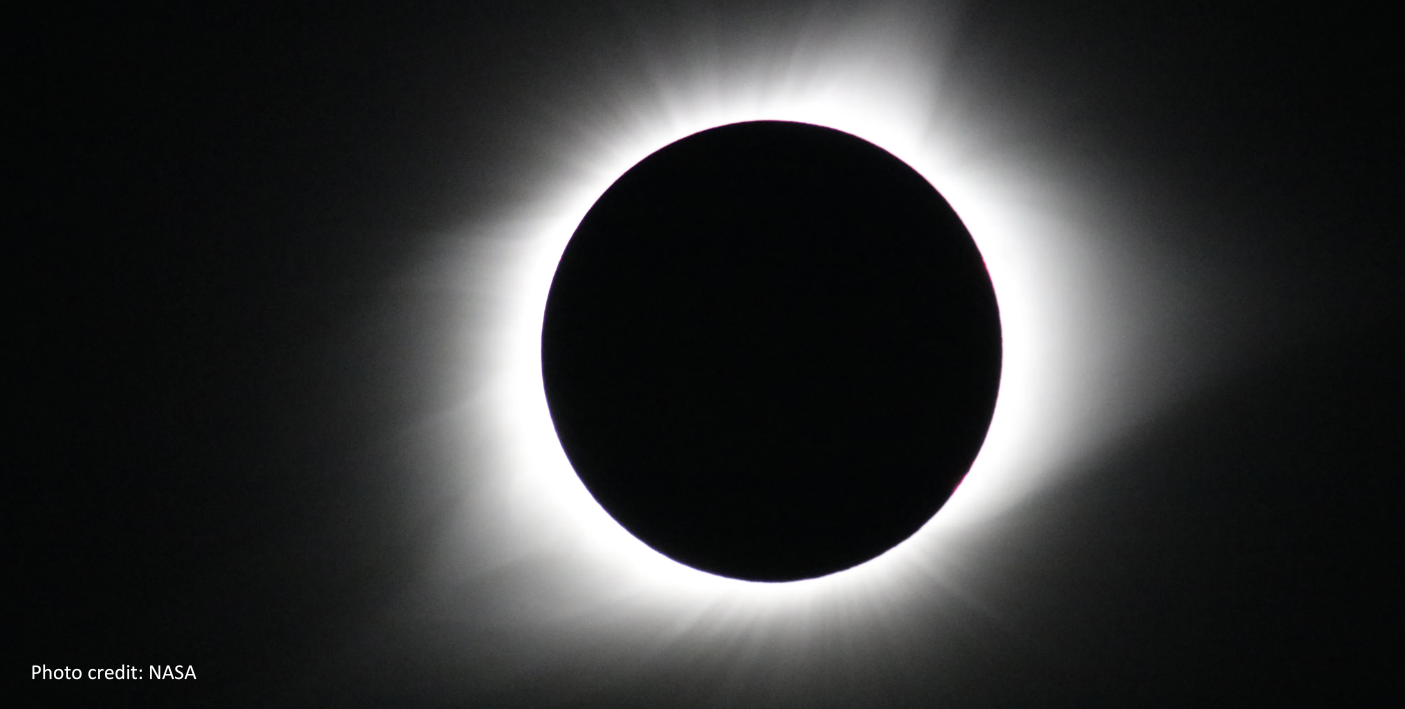
International Sun Day is celebrated on May 3 every year. This annual holiday was established in 1978 by former President Jimmy Carter to promote solar energy as a viable and environmentally friendly source of energy.
But this year, I dare say that International Sun Day will be “overshadowed” by another solar event that will take place just two weeks from now.
On April 8, virtually everyone in North America will see at least a partial solar eclipse, but those who live in or travel to the 115-mile wide path of totality that stretches from Mexico to Newfoundland will get to witness one of nature’s most awe-inspiring displays: a midday sun that gets completely occluded by the moon.
Getting to observe a total eclipse of the sun can be a life-changing experience. I’ve had the good fortune of seeing such a phenomenon on two previous occasions—once in China in 2010, and more recently, from a remote spot in Wyoming in 2017. It’s hard to convey in words, but witnessing a total eclipse of the sun can often elicit in a very visceral way the sense of being connected to something larger than ourselves.
Watching a solar eclipse can also be a reminder of the fact that all beings on this planet are dependent upon the sun for their very survival. Without the sun, photosynthesis—indeed all of life—would come to a screeching halt.
We all know this intuitively, but how many of us also realize the central role the sun has played in giving rise to the modern world through the extraction and combustion of fossil fuels? After all, oil, coal, and natural gas are really just forms of fossilized sunlight: decomposed plant matter that, after being buried for millennia beneath layers of sediment and rock, slowly turns into the carbon-rich deposits we now refer to as fossil fuels.
But now, thanks to the solar revolution that is well underway, we no longer need to rely on fossil fuels to power our homes, drive our cars, pump our water, or grow our food. We can now tap directly into and harness what is surely the greatest source of power in the entire solar system. And unlike fossil fuels, which tend to concentrate in certain regions only, and which must be mined at significant environmental and human cost, sunlight—because it is universally distributed—has the power to uplift and transform families and communities no matter how remote or isolated they happen to be. Whether it be through the provision of basic lighting, or the enhancement of water and food security, or by empowering women and girls, solar energy is making a profound difference today for millions of people around the world.
As we cast our gaze upwards on April 8, and gasp with awe as the world is suddenly plunged into an eerie and otherworldly darkness, let us all give thanks for the warmth and light and life-giving power of the sun.

SELF is a global leader in the fight against energy poverty. Since 1990, we’ve pioneered unique applications for solar energy, powering progress on food security, health care, education, gender equity, and more.
501(c)(3) non-profit organization
EIN: 52-1701564